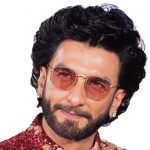Coming Back Home for the JLF
The second day of the JLF 2022 was a success after two years of the pandemic
 Antara Raghavan
Antara Raghavan  Antara Raghavan
Antara Raghavan  | 12 Mar, 2022
| 12 Mar, 2022
/wp-content/uploads/2022/03/LtoR-Koral-Dasgupta-Ira-Mukhoty-Anand-Leelakatan-scaled.jpg)
(LtoR) Koral Dasgupta, Ira Mukhoty and Anand Leelakatan
For all those who have missed the live version of the Jaipur Literature Festival, it was heartening to attend it physically again, although in a slightly different avatar. Instead of being at the Diggy Palace in January, the Jaipur Lit Fest 2022 is currently in the Clarks Amer Hotel from March 10 to 14. The only differences observed by long-term festival attendees was the warm weather, masks, more manageable crowds, and the change in venue. There were many comments on the seamless transition of the venues. As Namita Gokhale, author and JLF director remarked, “Our new venue is gracious and sprawling – it’s so wonderful to see it buzzing with vibrant conversations and animated discussions. The first two days have been imbued with that special JLF magic.”
The second day started off with many engaging sessions, and ended with electrifying performances on the Music Stage by Sufi folk singer Mooralala Marwada and the Kutle Khan Project. ‘Pure Evil: The Bad Men of Bollywood’, in the Front Lawn attracted a large crowd, as it featured the award-winning actor Manoj Bajpayee and the author Balaji Vittal. Fans of The Family Man star, will sympathise with Bajpayee when he said that the pandemic had levelled the playing field for all talent in the industry. This, he said, has helped to undo the long practice of only celebrating actors who play the hero’s role. “Anybody who was doing any role, other than the hero’s, was treated like a second-class citizen, on the set, by the audience, on the posters or at the award functions,” added Bajpayee.

Another lively session that took place in the Front Lawn featured columnist and author Sagarika Ghose. In lieu of Ghose’s new book Atal Bihari Bajpayee, the session, ‘Atal Bihari Vajpayee: The Personal and the Political’, was on India’s first BJP prime minister. Ghose’s comments on this iconoclastic figure summed up the nostalgia that a large number of Indians, both from the BJP and the Congress, feel about the late politician and poet. The topic was also felt to be timely, given the results of the elections. As Ghose noted, Vajpayee was representative of an era that lacked the divisions, religious tensions, and political camp driven nature that characterise today’s politics. “We’re losing the art of dialogue, of looking across the aisle. Vajpayee believed in dialogue,” said Ghose. “He showed that you can have friendship, sympathy, and love with the other side even if you didn’t have 100 per cent agreement with them.” However, she emphasised that Vajpayee was a creature of contradictions as even with his great oratory, irreverence, restraint, tolerance, respect for all parties and for democracy, he was ultimately a career politician. “He wanted to be in the limelight and hold power, and he failed the test of constitutional democracy several times.” However, she concluded that Vajpayee would not have been able to accept today’s politics, or the fact that “religious hatred and identities can tear relationships apart”.
Some other prominent sessions included those of actress and author Neena Gupta’s ‘Sach Kahun Toh: Truth Telling with Neena Gupta’, ‘The Company Quartet’, where festival director and author William Dalrymple was introduced by MP Shashi Tharoor, and ‘Epic Women’ with authors Koral Dasgupta, Ira Mukhoty, and Anand Neelakantan. This session in particular discussed how women in the ancient Indian epics are overlooked and underestimated even today. One example Neelakantan gave was the character Mantara in the Ramayana, who is always dismissed as needlessly meddling and spiteful. He added that people in her position are overlooked in reality as well. Dasgupta pointed out that Kunti, in the Mahabharata is always only depicted as ‘the mother’ or ‘manipulative’, while she herself simply portrayed Kunti as an ambitious woman. Mukhoty summed it up saying, “These stories were not innocent, and they serve to socialise women.”

While most rejoice at the return of the physical form of the festival, the digital format is still present, with several hybrid sessions. ‘The Travel Session’ had writers Colin Thubron, Robert Macfarlane, and Samrat Choudhury on Zoom, speaking with Taran N Khan and Deepanker Aron, who were present in Jaipur, all emphasising the continuing relevance of travel writing today.
These hybrid models, and the fact that the festival started online on March 5, show how the festival adapted to the virtual space, but it cannot compensate. As Gokhale says, “It is joyous to return on ground to greet live audiences – the shared energies of human communication, of non-verbal language, are hard to duplicate digitally
Full Circle Bookstore owner Priyanka Malhotra added, “The fact that we can come to a festival after two years is magical. The whole idea is for books and people to come together and that’s what’s been created.”

/wp-content/uploads/2024/11/Cover-Travel.jpg)






/wp-content/uploads/2024/08/Redemptionandrebirth1.jpg)
/wp-content/uploads/2024/11/Putin.jpg)
/wp-content/uploads/2024/03/Congress1.jpg)

More Columns
Maha Tsunami boosts BJP, JMM wins a keen contest in Jharkhand Rajeev Deshpande
Old Is Not Always Gold Kaveree Bamzai
For a Last Laugh Down Under Aditya Iyer